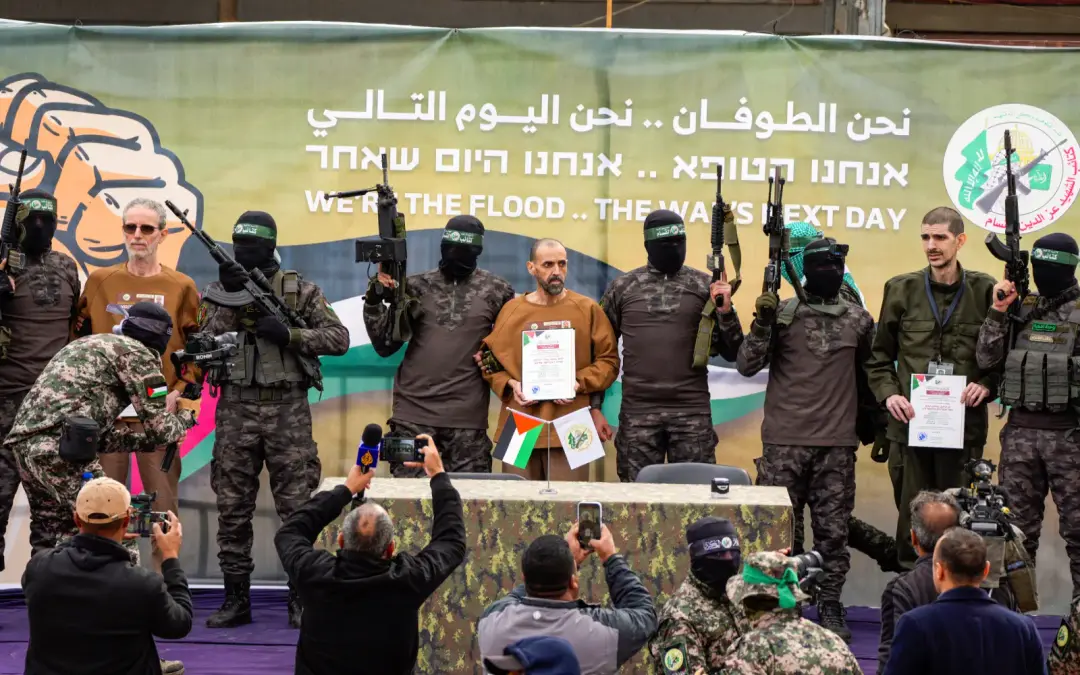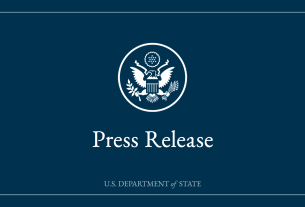As part of a fragile ceasefire agreement, Hamas released three Israeli hostages on Saturday while Israel freed dozens of Palestinian prisoners. The complex negotiations, which began following the October 2023 Hamas attack on southern Israel, represent a critical step toward a broader resolution, though questions remain over the deal’s long-term sustainability.
Hamas released three Israeli hostages—Eli Sharabi, Ohad Ben Ami, and Or Levy—who had been captured during the initial Hamas assault. The three men were paraded in front of the media in Gaza before being handed over to the International Red Cross and then transferred to Israeli forces. They had been held in Gaza for over a month, with Sharabi’s family tragically killed during the October attack.
In return, Israel released 183 Palestinian prisoners, busing them to the West Bank, including several who had been detained without trial after Hamas’s assault. The release of these prisoners is a continuation of the terms set forth in the truce, which mandates that Hamas gradually free a total of 33 Israeli hostages in exchange for around 1,900 Palestinian prisoners. Among those freed are individuals convicted of serious crimes, including bombings during the second intifada and those detained under administrative detention, a practice used by Israel to hold individuals without charge.
The Palestinian prisoners’ release comes amid ongoing discussions on the second phase of the deal, which involves further releases and a potential permanent ceasefire agreement. However, the situation remains precarious, with tensions over conditions in Gaza and the broader geopolitical landscape continuing to influence the negotiations.
While the ceasefire has provided a temporary reprieve, the future of the deal remains uncertain. As both sides await further steps, President Donald Trump’s controversial proposal to resettle Palestinians outside Gaza adds another layer of complexity to an already volatile situation. His plan has been heavily criticized by both Palestinian leaders and Arab governments, who reject the notion of forced displacement as a form of ethnic cleansing.
In the meantime, efforts to address prisoner treatment and secure the safety of those released continue to be key points of contention, with accusations of mistreatment on both sides.
Picture (From left to the right) Ohad Ben Ami, Eli Sharabi and Or Levy, pictured just before being handed over to the Red Cross in Deir al-Balah. (AP pic) via FMT



